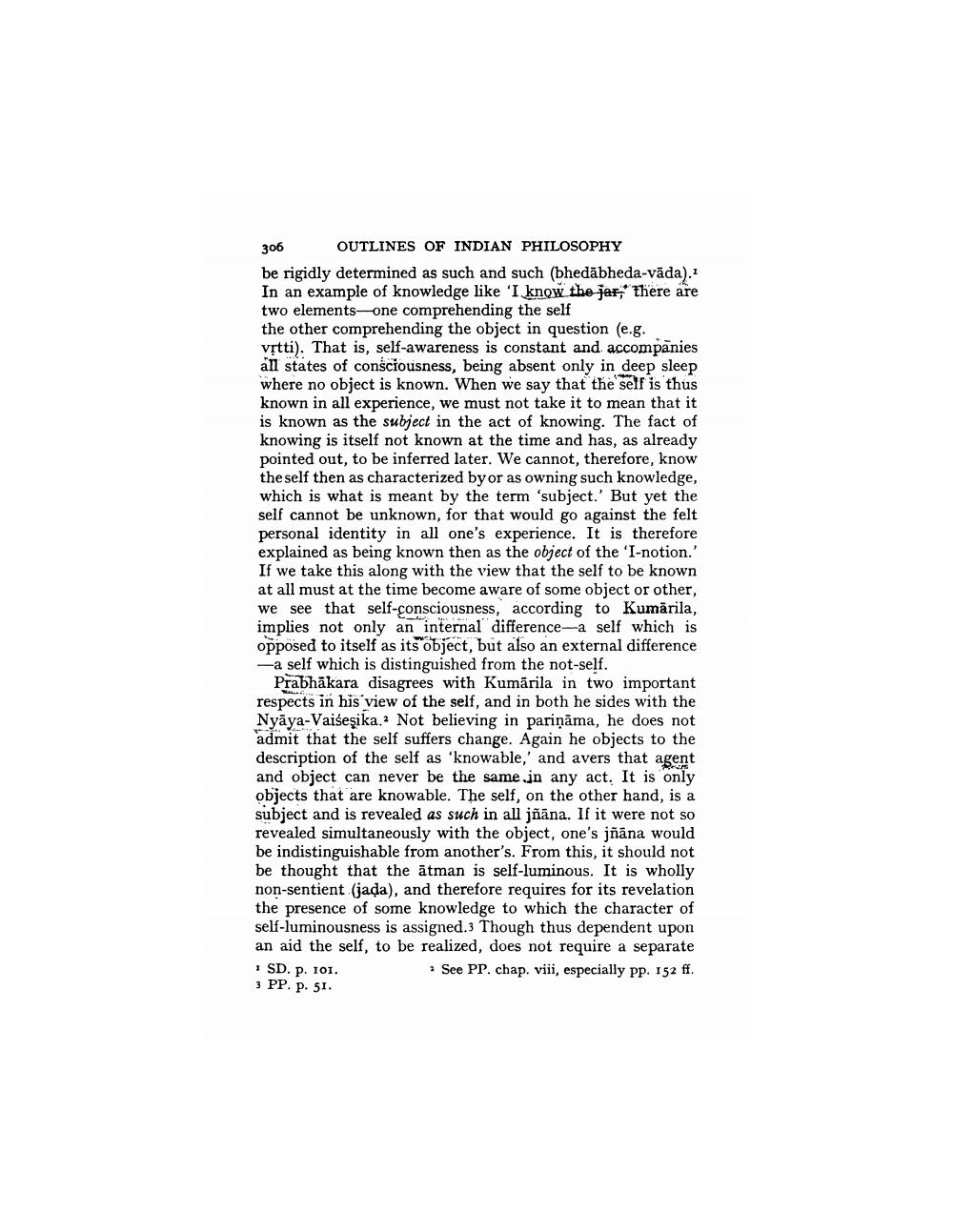________________
306 OUTLINES OF INDIAN PHILOSOPHY be rigidly determined as such and such (bhedābheda-vāda). In an example of knowledge like 'I know the jar, there are two elements-one comprehending the self the other comprehending the object in question (e.g. vrtti). That is, self-awareness is constant and accompanies all states of consciousness, being absent only in deep sleep where no object is known. When we say that the self is thus known in all experience, we must not take it to mean that it is known as the subject in the act of knowing. The fact of knowing is itself not known at the time and has, as already pointed out, to be inferred later. We cannot, therefore, know the self then as characterized by or as owning such knowledge, which is what is meant by the term 'subject.' But yet the self cannot be unknown, for that would go against the felt personal identity in all one's experience. It is therefore explained as being known then as the object of the 'I-notion.' If we take this along with the view that the self to be known at all must at the time become aware of some object or other, we see that self-consciousness, according to Kumärila, implies not only an internal difference a self which is opposed to itself as its object, but also an external difference -a self which is distinguished from the not-self.
Prabhākara disagrees with Kumārila in two important respects in his view of the self, and in both he sides with the Nyāya-Vaišeşika. Not believing in pariņāma, he does not admit that the self suffers change. Again he objects to the description of the self as 'knowable,' and avers that agent and object can never be the same in any act. It is only objects that are knowable. The self, on the other hand, is a subject and is revealed as such in all jñāna. If it were not so revealed simultaneously with the object, one's jñāna would be indistinguishable from another's. From this, it should not be thought that the atman is self-luminous. It is wholly non-sentient (jada), and therefore requires for its revelation the presence of some knowledge to which the character of self-luminousness is assigned.3 Though thus dependent upon an aid the self, to be realized, does not require a separate · SD. P. 101.
See PP. chap. viii, especially pp. 152 ff. 3 PP. p. 51.




